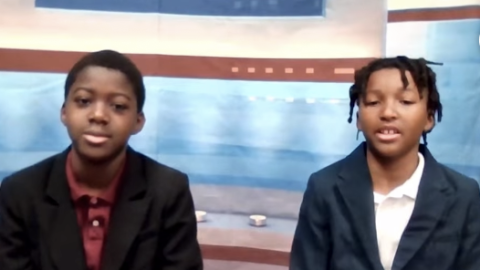Two months from now, the Chattanooga Lookouts will be ready for their first opening day at Erlanger Park, the new stadium now under construction in the South Broad District.
More From WUTC
-
Last fall, EPB’s Board of Directors tapped Janet Rehberg to succeed David Wade as the utility's next president and CEO in a leadership transition now unfolding this year here in Chattanooga.
-
Futuristic Caveman Official brings his own flavor of cinematic synth wave to this week’s episode of WUTC's "Live in the Library" with Clark Gibson, recorded live downtown at The Chattanooga Public Library.
-
Here in Chattanooga, there’s a group of young news anchors that you might not know about, as Ian-Alijah Bey of Chattamatters tells us.
-
For the past sixty-five years, Girls Inc. of Chattanooga has served more than 40,000 girls across Hamilton and Marion Counties - in school, after school and beyond school.
UTC on WUTC
-
For Bart Elmore, there’s the business side of an environmental story - and the environmental side of a business story. On Tuesday, he will speak here at UTC on “Monsanto, GMOs, and the Future of Food."
-
Throughout his career, Steve Forbes has advocated for the free enterprise path in economics. On Thursday, February 26th, the chairman and editor-in-chief of Forbes Media will speak here at UTC.
-
Sally Faulkner, a local supporter of WUTC, brought her playlist to "The Haley Solomon Show" for this episode of "DJ for an Hour" - a program that supports your public radio station in Chattanooga and the Tennessee Valley.
-
Alva Leigh and Call Me Spinster join Haley Solomon live at WUTC to discuss and perform songs from Alva’s new album Wilderness.
-
Meet three ex-government scientists who formed a garage rock trio. Deep State Birds brings tons of energy to this episode of WUTC's "Live in the Library" with Clark Gibson.
-
Chattanooga singer-songwriter Ben Stephens joins Clark Gibson in the studio for this episode of WUTC's "Live in the Library." (Aired 11/13/25)
News From NPR
More From NPR































